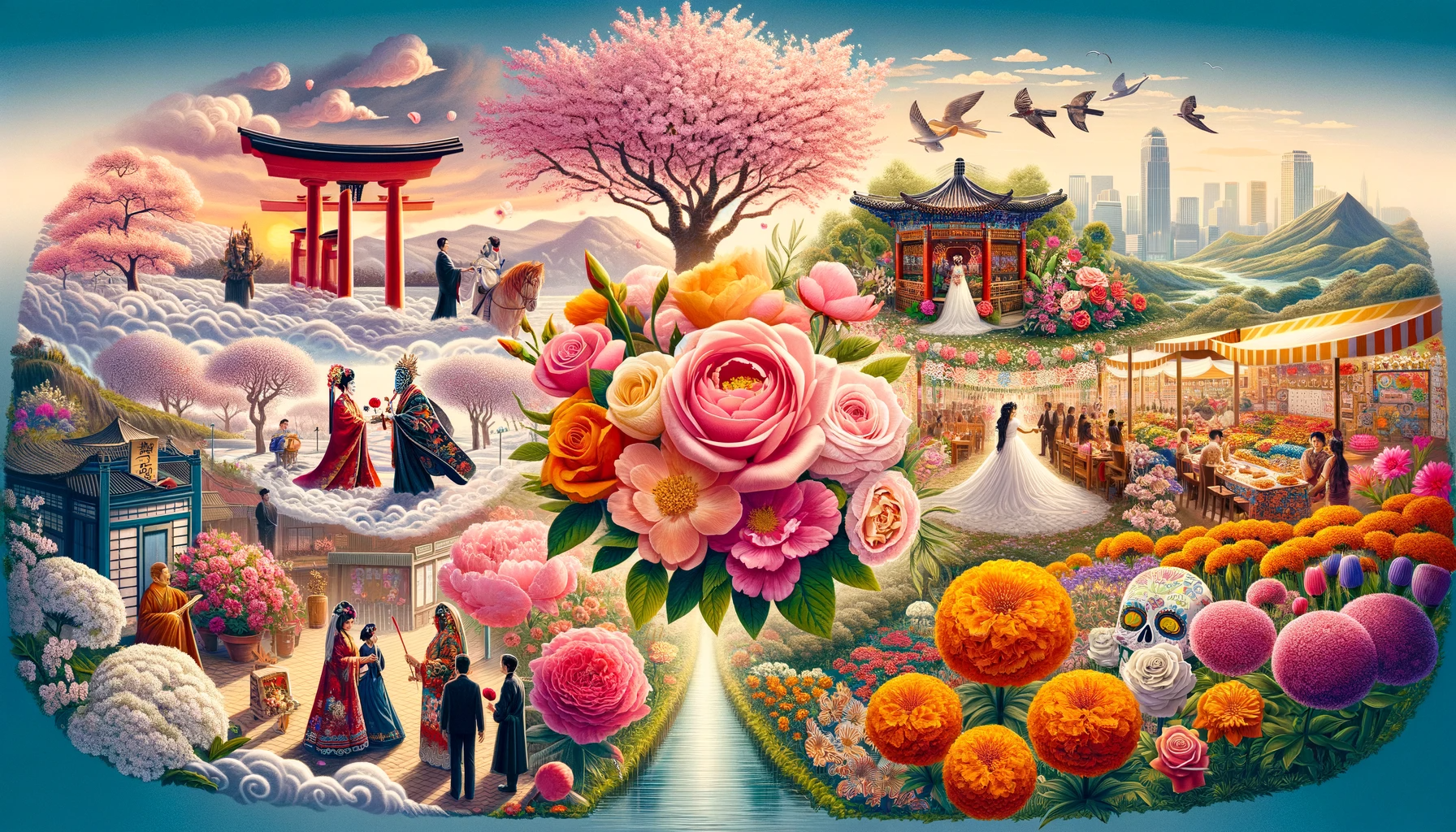
Flowers have been an integral part of human culture and tradition for centuries, transcending geographical and cultural boundaries. From the vibrant flower markets of Flowers Evansville IN to the cherry blossoms of Japan, flowers hold a universal appeal. They are not just elements of natural beauty but also potent symbols with diverse meanings in various cultures. This post explores the multifaceted roles that flowers play in different cultural traditions around the world.
Symbolism and Significance in Eastern Traditions
In Eastern cultures, flowers are often laden with symbolic meanings. For example, in China, the peony is revered as the “king of flowers”, symbolizing prosperity, beauty, and honor. The cherry blossom, or sakura, in Japan epitomizes the transient nature of life, a concept central to Buddhist teachings. The beauty and brief lifespan of these blossoms are a poignant reminder of the fleeting nature of existence.
Similarly, in Flowers Evansville IN, local florists often speak of the language of flowers, where each bloom holds a unique meaning. This tradition, borrowed from Eastern cultures, allows people to express feelings and messages through the careful selection of flowers.
Floral Traditions in Western Cultures
In Western cultures, flowers play a pivotal role in various traditions and ceremonies. For instance, in weddings, flowers are not just decorations but symbols of love, happiness, and fertility. The choice of wedding flowers often reflects personal meanings and cultural traditions. In the United States, the rose is a popular choice for its classic symbol of love and romance.
Additionally, in places like Flowers Evansville IN, flowers are integral to memorial traditions. They are used to express condolences and celebrate the life of the departed, with different flowers conveying different sentiments.
Rituals and Celebrations Around the World
Globally, flowers are central to numerous rituals and celebrations. India’s Holi, the festival of colors, also sees the use of flowers in its celebrations. The vibrant natural colors used in Holi were traditionally made from flowers and herbs, signifying the advent of spring and the victory of good over evil.
In Mexico, during the Day of the Dead celebrations, marigolds are commonly used. Known as “cempasúchil”, these flowers are believed to guide the spirits of the deceased back to the world of the living with their vibrant colors and strong scent.
Flowers in Art and Literature
Flowers have long been a popular subject in art and literature, often used to convey deeper meanings and emotions. The Dutch Golden Age paintings are renowned for their intricate and symbolic floral compositions. In poetry and literature, flowers are frequently employed as metaphors for beauty, life, and the passage of time.
In modern times, cities like Flowers Evansville IN host flower shows and art exhibitions, showcasing the beauty of flowers through artistic expressions and further cementing their cultural significance.
The Role of Flowers in Daily Life
Beyond their roles in ceremonies and symbolism, flowers are a part of daily life in many cultures. They are used for their aesthetic appeal in homes and public spaces, and for their therapeutic properties in aromatherapy and natural medicine. The act of gardening itself is a deeply rooted cultural practice in many societies, highlighting the connection between humans and nature.
In urban areas like Flowers Evansville IN, community gardens and flower shops are common spaces where people connect with nature and continue the tradition of using flowers to enhance their daily lives.
Conclusion
Flowers, with their myriad colors, shapes, and fragrances, are more than just a feast for the senses. They are deeply ingrained in the cultural fabric of societies around the world. From the cherry blossoms of Japan to the flower markets of Flowers Evansville IN, they continue to play a significant role in various traditions, celebrations, and daily life. Their universal language of beauty and symbolism bridges cultural gaps, reminding us of our shared human experience and the transient yet profound nature of life itself.
Contact Joni’s Flower Shop, (812) 874-0100, to help you find that perfect floral arrangement for any occasion.
